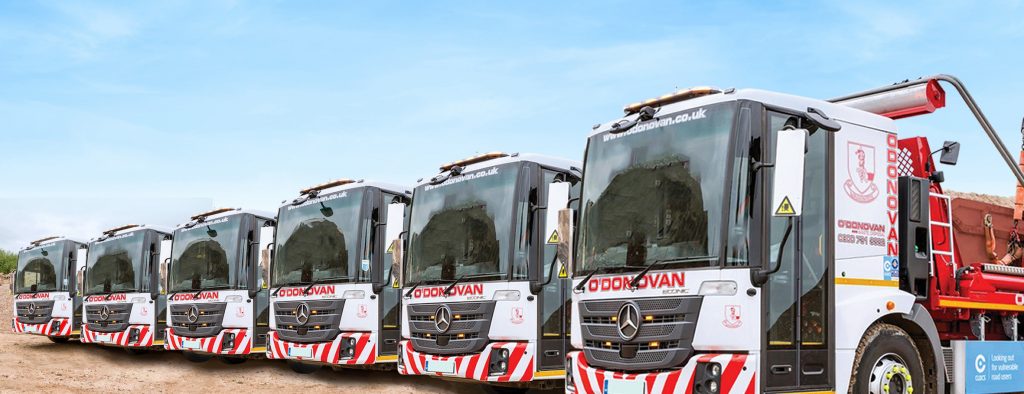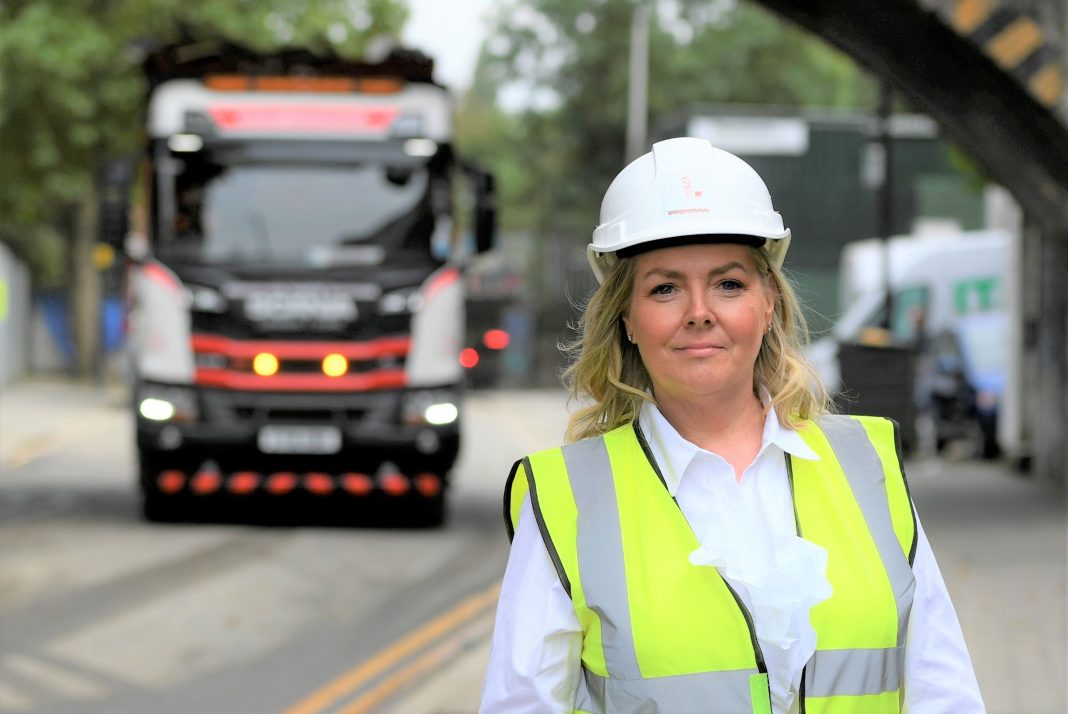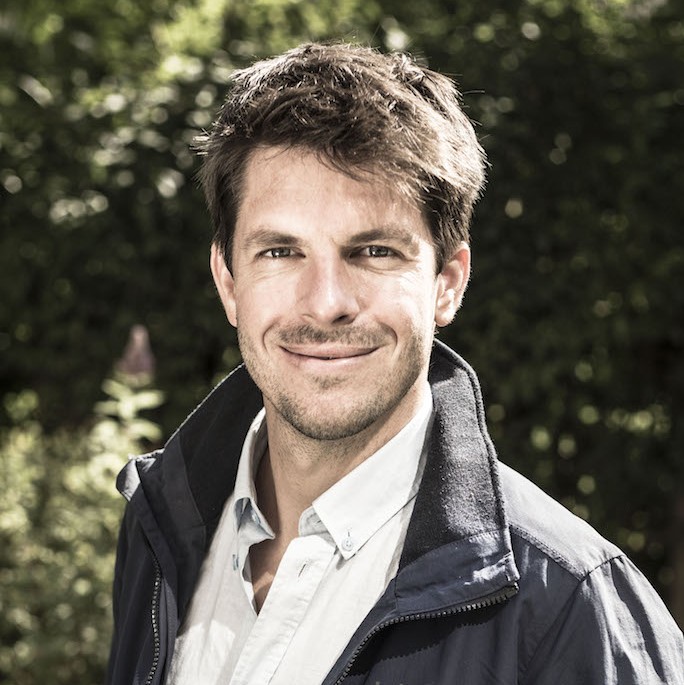Female Skills That Make a Good Leader
Interview with Jacqueline O’Donovan, Managing Director of O’Donovan Waste Disposal. Under her steer, the waste management business has gone from strength to strength and has 185 employees and a turnover of over £21m. Whilst the company has received numerous accolades for its work, Jacqueline herself is recognised as a leading force in the industry, including being named PwC Private Businesswoman of the Year and Growing Business Awards Entrepreneur of the Year.
CityChangers.org: Jacqueline, what’s your company’s core business?
Jacqueline O’Donovan: We are a waste management company. We service the construction and demolition industry. Because we have got 100 heavy goods vehicles to carry out waste management, we also fall under the logistics sector too.
CityChangers.org: Why on earth did you get into the business of waste?
Jacqueline O’Donovan: Waste is a fantastic industry. Once you’re in it, you’ll never leave. O’Donovan is a family-run business with myself and my three siblings running it. Sadly, my father died when I was 17 and I became MD at the age of 19. I left school at 16 and still haven’t got any official business qualifications.
CityChangers.org: That’s quite unusual.
Jacqueline O’Donovan: Not really. The waste industry is very generational, handed down from generation to generation. Which often feels like we’re stuck in the 20th century. But I’m busy dragging the waste sector into the 21st as quick as I can. We’re seen as innovators.
CityChangers.org: In what ways?
Jacqueline O’Donovan: When I say we’re the innovators, I’m not saying we’re doing groundbreaking stuff. Innovation can be quite simple and still be effective. On a skip lorry, the chains that hold the skip hit against the skip; it’s a loud metal against metal sound. Residents complain a lot about that noise. So, we just bought a decibel reader, nothing flashy, and we measured noise at different distances. Then we worked with a manufacturer to produce 100% recyclable canvas sleeves with Velcro fastenings. We wrap them around the track chains and that reduces our noise level by 23%. It doesn’t cost a fortune and it’s a lasting solution. Nothing fancy, really. Of course, sometimes you need to make bigger investments. In 2016, we were the first UK company to buy direct vision skip-loaders. When the passenger door is fully glazed, like a bus door, the driver has a clear view of what is on his near side. The whole vehicle sits lower on the road so the driver can make eye contact with cyclists. London has seen many fatal cycling accidents involving heavy goods vehicles…

CityChangers.org: Can we have another example?
Jacqueline O’Donovan: At our Wembley depo in West London, we put our diesel tanks up vertically because we couldn’t afford to lose land space by going horizontal. A bulk diesel tank for the lorries is normally horizontal. We’ve gone vertical, to save more than 50% of the footprint of that yard.
CityChangers.org: These are very practical solutions. What about larger, systemic ones?
Jacqueline O’Donovan: When I look at innovation, I like to look at the whole package. Because I think this is where the problem is: people look at something in isolation and don’t realize the ramifications of looking at things in isolation have.
CityChangers.org: Help me understand, please.
Jacqueline O’Donovan: TfL (nb. Transport for London) is a good example. They go out to industry and get all the experts around the table. They help them come up with their plans, their policies, their ideas, what they want to do with their innovations. Another example is using BIM (nb. Building Information Model) for demolition. BIM comes out of the aerospace sector. If you’re building an airplane, and you’re doing the fuselage, and I’m doing the engine, you pass on the drawings to me, I fill in my bit, and I pass on to the person doing the electrics, and we all share that document. The same happens in building. But, for the longest time, demolition wasn’t included in BIM. If a building’s average lifespan is between 30 and 40 years, you know when it’s going to be decommissioned or demolished. People will want to know that materials x and y have gone into it, for them to be reused and recycled. But they’re only looking at that now. Why wasn’t that thought of when BIM was adopted by construction!
CityChangers.org: Yes, why?
Jacqueline O’Donovan: Because people don’t talk to each other. The architects, the planners, the construction and the demolition people. I just don’t think people come to the table with the experts quick enough.
“I think our success is because I think differently to the way many men think in the industry.”
CityChangers.org: The circular economy is trying to do exactly that.
Jacqueline O’Donovan: Yes, but I think a problem is that they actually haven’t been at the coalface. When an academic comes up with the plan for the circular economy, that’s a great idea. It’s great for sustainability. But trying to turn that 25-page academic paper into a paragraph for Joe Bloggs who left school at 16 and didn’t really do very well academically because he wanted to get into his dad’s business, is a different kettle of fish. And that is the biggest barrier to us getting more sustainable quicker.
CityChangers.org: Do you see things changing?
Jacqueline O’Donovan: 20 years ago, if I was in a room and told people I work in a waste management company, conversation would close down. Today, if you say you work in a waste management, their eyes light up and they want to know how you do it and what happens to the waste and where it goes. The excitement is there, but the joined-up thinking often isn’t. For example, an energy-from-waste plant wants us to drive waste for 5 hours to their plant. What’s environmental about that!
CityChangers.org: What can be done about it?
Jacqueline O’Donovan: I can’t speak for that energy-to-waste plant, but I often wonder whether people have thought their plans through. I ask myself: Is it them, or is it me? Also, I think that women are more used to joined-up thinking. Many men don’t always seem to use that ability. To stand back, look at it, and run it through from all angles in a short space of time.
CityChangers.org: Do women think differently?
Jacqueline O’Donovan: Historically, women have had the dinner on the go, or were doing the homework with children, the washing machine’s going, you know, we were and still are always multitasking. Everything that comes to my desk in a day is a challenge. And I take that challenge on board, I weigh up my options and come to my decision. So, I think our success is because I think differently to the way many men think in the industry. I feel like I’m the mother of industry here: I understand the mechanics of the engine, the wheels and everything, the compliance, the staff training, the accounts, I’ve got my hands on absolutely every part of the business. I think that helps me enormously and inspires the team. We have very low staff turn-over and many have been with us for years.
CityChangers.org: What’s it like working in a male dominated industry?
Jacqueline O’Donovan: When I was young, I didn’t really think anything about being a female in a male dominated industry. I socialised with the workers, I listened to their conversations. In those days, the business was different; there weren’t many industry meetings.
CityChangers.org: And today?
Jacqueline O’Donovan: Every day I get judged on being a female, having blonde hair. Often, I don’t get asked a question. They assume I wouldn’t know the answer and look for a man to give it. It happens daily, which just makes me laugh.
CityChangers.org: Not cry?
Jacqueline O’Donovan: I can still walk into a room of 20 men and be the only female. It has never fazed me and I sort of chuckle to myself because, apparently, I’ve got this bit of aura about me and someone once said to me ‘I can hear their knees knocking’. They seem to fear me. (laughs)
CityChangers.org: Do you think the industry welcomes and encourages women?
Jacqueline O’Donovan: I think a lot is being done to welcome women more so than encourage them to enter the sector and that still needs work. But what disappoints me is that the women that are already here, don’t join the campaign. Let’s call it a campaign to progress. I think women need to stand up and be counted. We need to get more women in to middle management. Because I think once they get into middle management, it will spread out. There’s no point being at the bottom and being at the top, in my opinion.


